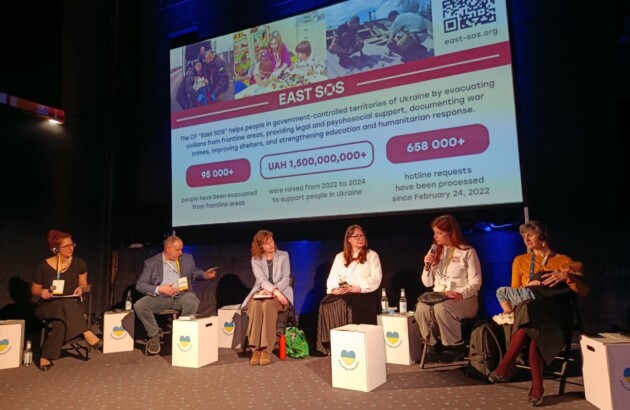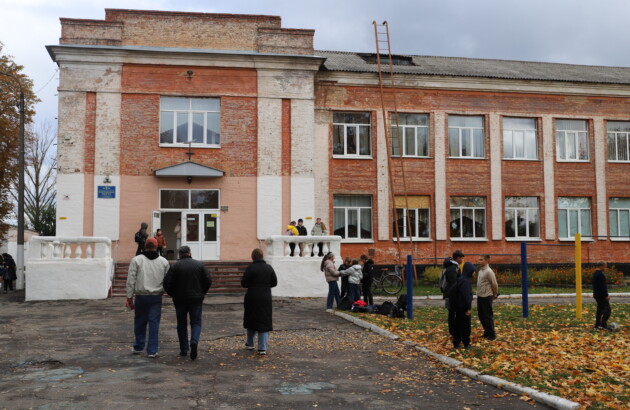“People whose homes are located in the temporarily occupied territories (TOT) still have no right to compensation”: Yaroslav Taranets, senior lawyer at East SOS, an interview with Donbas Realities
Last week, the Cabinet of Ministers of Ukraine adopted Resolution No. 815, introducing a mechanism for remote assessment of destroyed housing. Special commissions will now be able to document the damage using satellite imagery, drone footage, and photos or videos taken on mobile phones. As a result, residents of areas affected by active hostilities will be able to apply for compensation under the eRestoration program.
Yaroslav Taranets, senior lawyer at East SOS, joined the Donbas Realities project to comment on the recent decision by the Cabinet of Ministers and explain what internally displaced persons (IDPs) can expect:
“People from the TOT still do not have the right to compensation for destroyed housing or property they are unable to use due to its location in these areas. The newly adopted resolution introduces a mechanism for inspecting destroyed housing in frontline regions. While the document mentions the possibility of inspections in the TOT, it also notes that this is currently an experimental project, initially focused on surveying frontline areas. Based on the outcomes of this pilot initiative, a decision may later be made to extend the mechanism to include the TOT.”
Yaroslav Taranets explained that the resolution addresses a number of frontline settlements currently under Ukrainian control, which have been heavily damaged and are regularly shelled by the enemy. Residents who fled these areas have been unable to receive compensation because inspection commissions cannot safely access the destroyed housing due to ongoing attacks. To resolve this, the government adopted a resolution allowing for remote assessments of destroyed property using:
- satellite imagery;
- video footage from unmanned aerial vehicles (UAVs);
- photos and videos taken on mobile phones.
However, the lawyer emphasized that there are still significant concerns regarding the implementation of the resolution. In particular, even attempting to take photos or videos in frontline areas can pose serious risks to individuals’ safety.
Moreover, the resolution sets strict technical requirements for the submitted materials:
- photos must be full-color, clear, and free of defects;
- files must include the date, time, and geolocation data;
- images should display identifying features of the property, such as address signs, house numbers, signage, and other landmarks;
- at least one general view of the building and three different angles of the damaged dwelling are required to confirm the destruction.
“I think it’s clear that this will be very difficult to do in frontline areas. Some people might be able to provide such documentation, but certainly not everyone,” – the lawyer concluded.
The program also addressed draft law No. 11161, which concerns compensation for destroyed housing in TOT. The draft law aims to establish a procedure for obtaining such compensation. Although it was submitted to the President for signature at the end of last year, it has not yet been signed.
This is one of the few available options for residents of the temporarily occupied territories to receive compensation. The draft law primarily establishes that all residential buildings located in the TOT are presumed destroyed, which would make compensation accessible to affected individuals,” explained a representative of the foundation. “However, it has yet to be signed. Unfortunately, many people remain unaware of the next steps they need to take.
According to Yaroslav Taranets, residents of frontline areas and the TOT currently have limited alternatives and can only rely on rental housing. There are several forms of state assistance available at the moment:
- financial support for living expenses (UAH 2,000 for adults and UAH 3,000 for children and people with disabilities);
- a housing rent subsidy provided by the Ministry of Social Policy.
Watch the full episode below:
The foundation’s advocacy efforts are part of the project “Support for War-Affected Vulnerable Groups and Residents of Remote Areas of Ukraine”, implemented with the financial support of the European Union in Ukraine.
East SOS works to uphold the rights and freedoms guaranteed by the Constitution of Ukraine.


